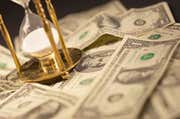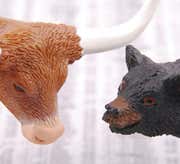When: 1711
Where: United Kingdom
How Much: Stocks in the South Sea Company were traded for 1,000 British pounds (unadjusted for inflation) and then were reduced to nothing by the later half of 1720. Simply put, a massive amount of money was lost.
The Sun Never Sets on the British Empire
In the 1700s, the British empire spanned the entire globe. For the British, the eighteenth century was a time of prosperity and opulence, meaning a large section of the population had money to invest and were looking for places to put their money. So, the South Sea Company had no problem attracting investors when, with an IOU to the government worth £10,000,000.00, the company purchased the "rights" to all trade in the South Seas.
The few companies offering stock at that time were all solid but difficult investments to get your hands on. For example, the East India Company was paying out considerable tax-free dividends to their mere 499 investors. The scarcity of stocks available and the widely known success of the companies drove up the public appetitive for new opportunities to get in on the action. Enter the SSC, which was perched on top of what was perceived to be the most lucrative monopoly on earth.
The first issue of stock didn't even satiate the voracious appetite of the hardcore speculators, let alone the average investors who were assured of this company's coming dominance. The popular conception was that Mexicans and South Americans were just waiting for someone to introduce them to the finery of wool and fleece in exchange for mounds of jewels and gold! So nobody questioned the repeated re-issues of stocks by the South Sea Company--people just bought the expensive stocks as fast as they were offered. It didn't matter either to investors that the company wasn't headed by experienced management. Those who lead the company, however, were born public relations directors, who set up offices furnished with affluence in the most extravagant quarters. People, once they saw the wealth the SSC was "generating," couldn't keep their money from gravitating towards the SSC.
The Mississippi Company Adds Fuel to the Fire
Not long after the emergence of the SSC, another British company, the Mississippi Company, established itself in France. The company was the brainchild of an exiled Brit named John Law. His idea wasn't so much based in trade, but in switching the monetary system from gold and silver into a paper currency system. The Mississippi Company caught the attention of all the continental traders and gave them a space to put their hard-earned dollars. Soon the worth of the Mississippi Company's stock was worth 80 times more than all the gold and silver in France. Law also began collecting defunct companies to add to his massive conglomerate.
This success on the continent stirred British pride, and, believing that British companies could not fail, British investors were desperate to invest their money. They were blind to many indications that the SSC was run too poorly to break even (whole shipments of wool were misdirected and left decaying in foreign ports), and people wanted to buy even more stocks. The South Sea Company and others made a point of giving people what they wanted. The demand for investments caused IPOs to sprout out of everything, including companies that promised to reclaim sunshine from vegetables and to build floating mansions to extend Britain's landmass. They all sold like mad.
A British Bailout
Eventually the management team of SSC took a step back and realized that the value of their personal shares in no way reflected the actual value of the company or its dismal earnings. So they sold their stocks in the summer of 1720 and hoped no one would leak the failure of the company to the other shareholders. Like all bad news, however, the knowledge of the actions of SSC management spread, and the panic selling of worthless certificates ensued. The huge hole in the south sea bubble also punctured the Mississippi Company's unrealistic value and both came crashing down.
A complete crash, which would be heralded by the folding of banks, was avoided due to the prominent economic position of the British Empire and the government's help in stabilizing the banking industry. The British government outlawed the issuing of stock certificates, a law that was not repealed until 1825.
Market Crashes: The Florida Real Estate Craze (1926)
-
 Insights
InsightsWhy the South China Sea Dispute Matters for the United States
The South China Sea dispute between China and other countries that border the area matters to the United States... -
 Insights
InsightsThe Birth of Stock Exchanges
Learn about the evolution of stock exchanges, from the Venetian states to the British coffeehouses, and finally to the NYSE. -
 Investing
InvestingWhat Must The UK Do To Keep North Sea Oil Afloat?
The UK government may need to take drastic action to ensure the viability of UK North Sea offshore oil production amid high costs and shrinking margins. -
 Insights
InsightsFive Of The Largest Asset Bubbles In History
The five bubbles discussed here were among the biggest in history; their lessons should be heeded. -
 Personal Finance
Personal FinanceShort Selling: Making The Ban
Short selling has been around as long as the stock market, and it hasn't always been looked on favorably. -
 Insights
InsightsWall Street History: The NYSE Is Born, Bubbles Form
This week in financial history saw the birth of the NYSE an attempt to destroy Microsoft, and much more. -
 Financial Advisor
Financial AdvisorSelecting Software for Your Wealth Management Startup
Selecting the right software for a wealth management firm involves several key considerations. -
 Personal Finance
Personal FinanceSouth State Completes Deal for Southeastern (SSB)
South State Corp., the parent of South State Bank, announced the completion of its acquisition of Southeastern Bank Financial Corp. -
 Investing
InvestingTop 3 British Pound ETFs
If you're betting on a recovery after Brexit, you might want to consider these British pound ETFs. -
 Tech
TechWhy Is South Korea So Important to Bitcoin Prices?
South Korea is one of the largest markets for bitcoin traders worldwide, hence, its outsized impact on BTC prices.



